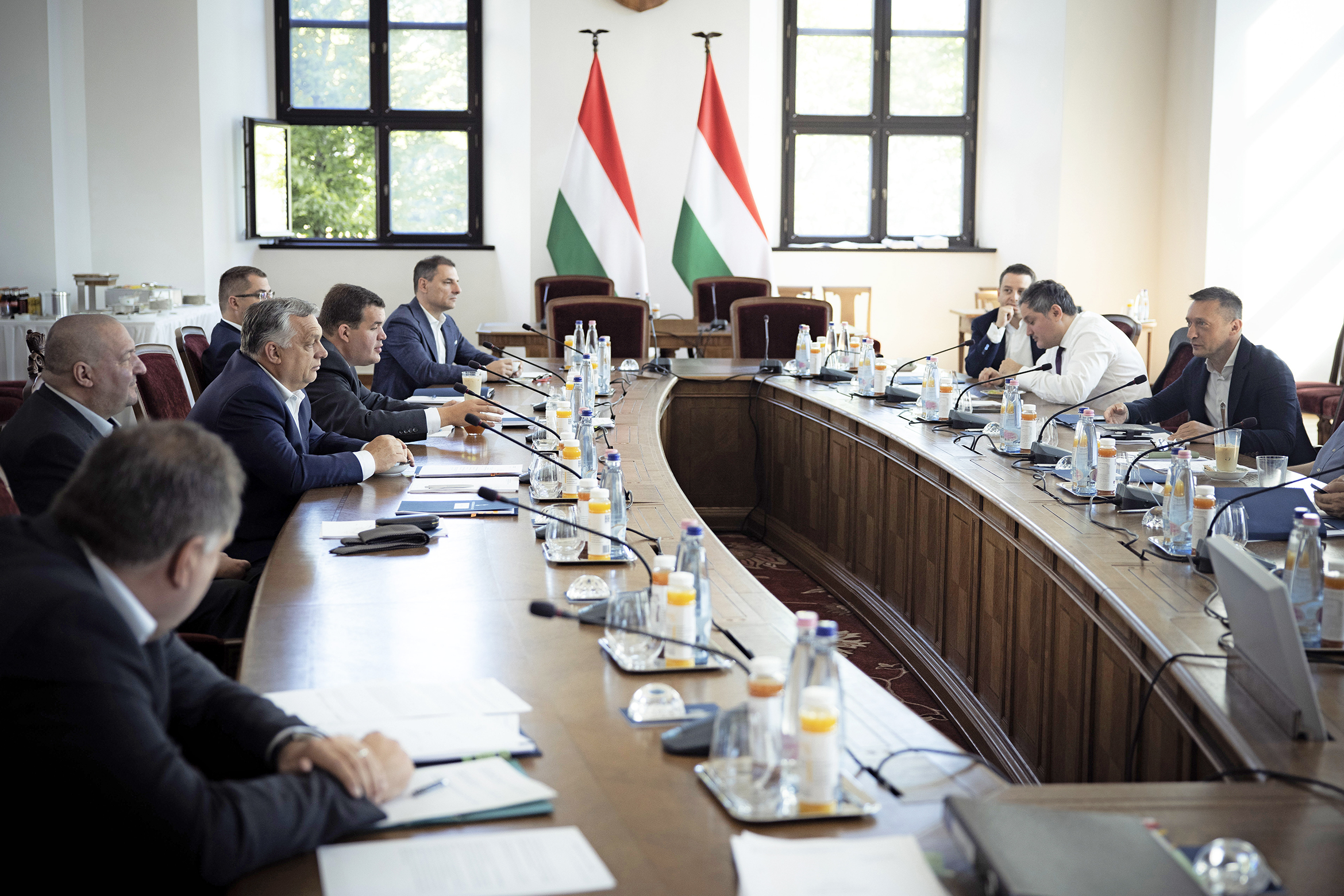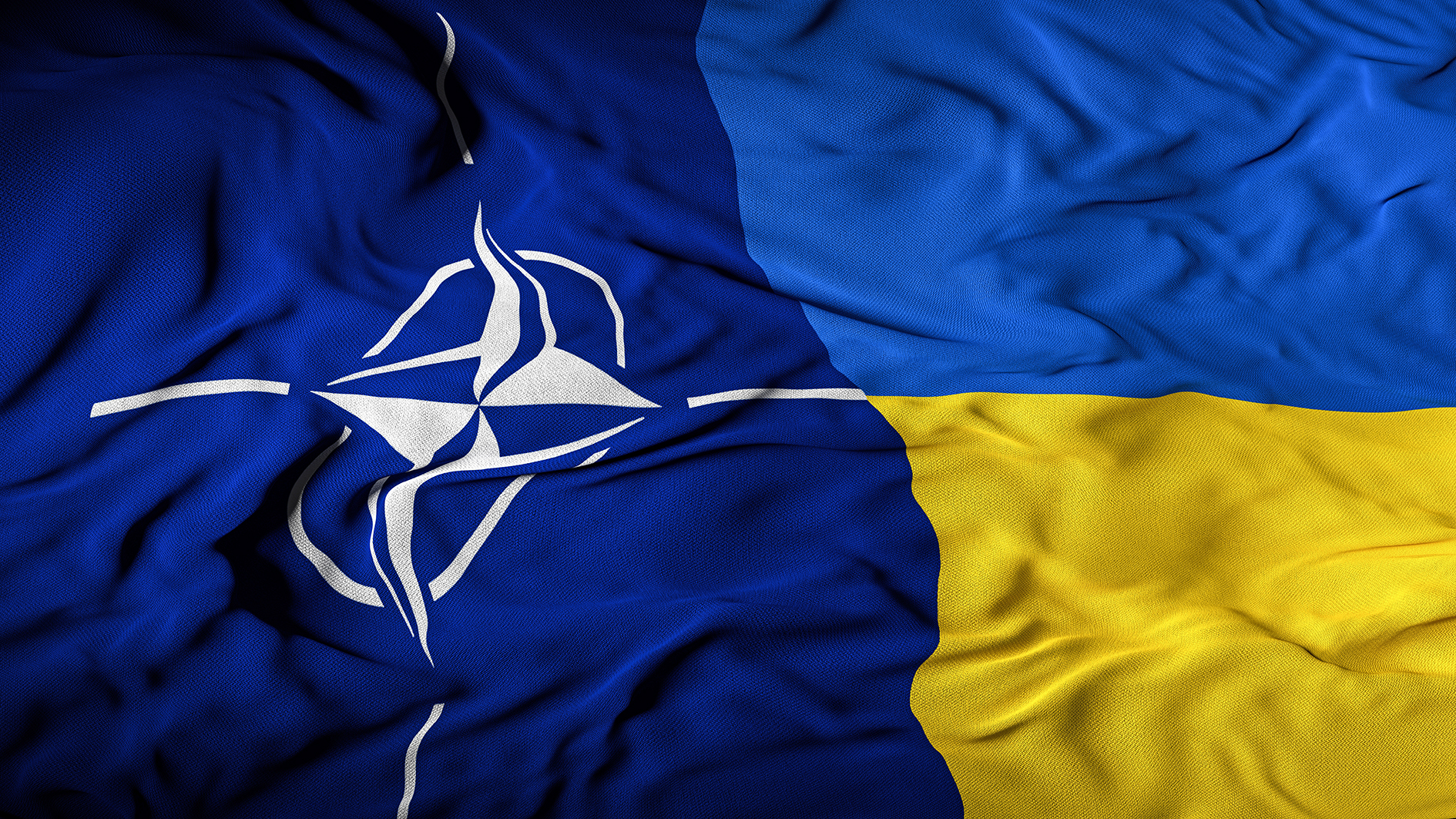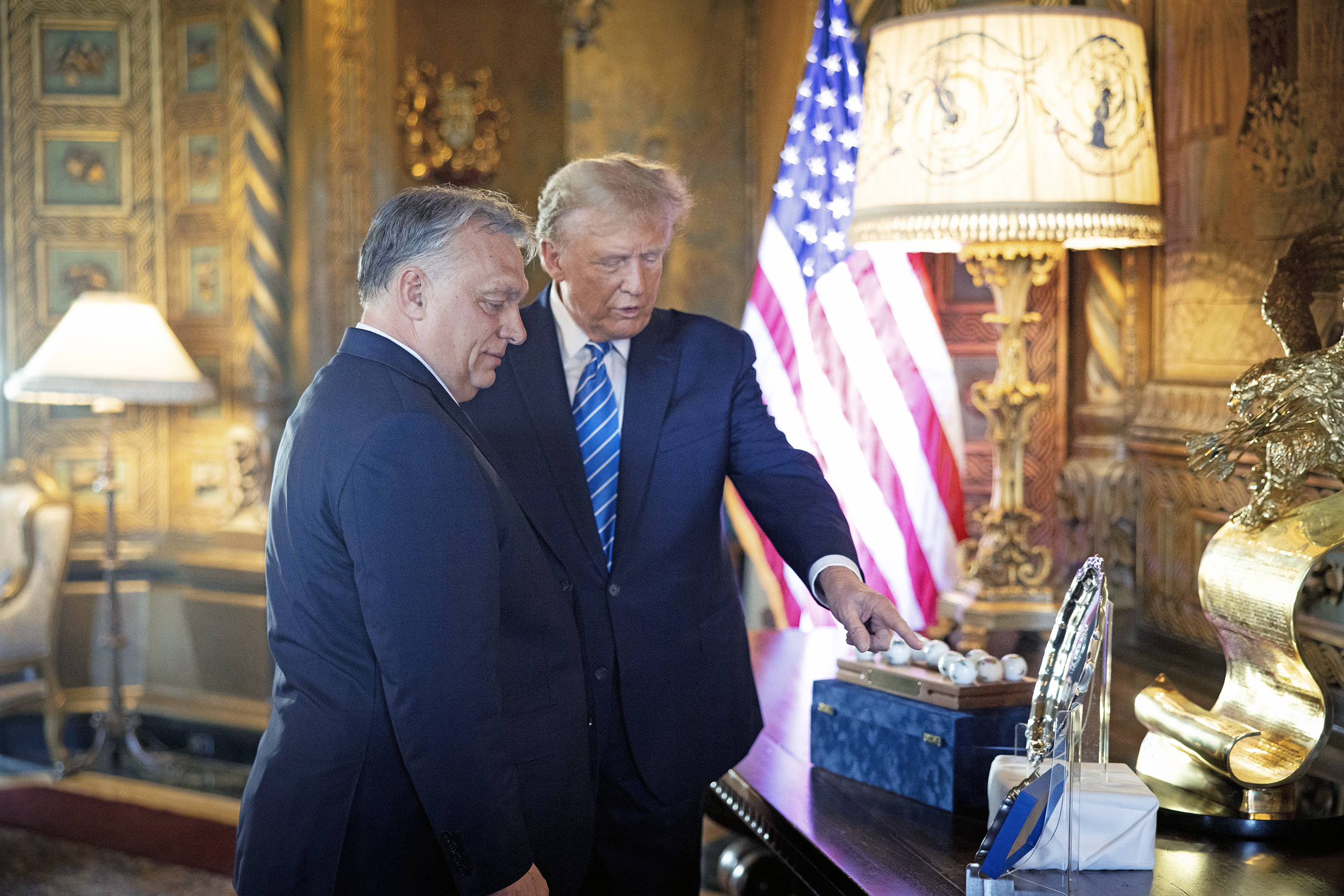A Tale of Gold, Gas, Tourism and Conflict

In this photo released by the Press Office of the Prime Minister on July 13, Prime Minister Viktor Orbán (third left) is seen with his Cabinet of Ministers at his Castle District offices in the Carmelite Monastery. On the agenda was the energy crisis in Europe; prices are rising because of the war in Ukraine, and it has become clear in recent days that there may not be enough gas in the EU countries in the fall-winter period.
Photo by Zoltán Fischer/MTI/Prime Minister’s Press Office.
At a two-day NATO summit in Madrid in late June, Prime Minister Viktor Orbán reiterated his position that achieving peace in Russia’s war with Ukraine would be the best solution to the economic turmoil it has caused, according to a video on his Facebook page.
“If there is peace, there will be no wartime inflation; [thus] Hungary is pro-peace,” he said. “Peace will bring about economic prosperity; there won’t be inflation in peacetime, and the risks threatening Hungary’s security will abate,” he added.
Consequently, brokering peace should be a top priority for NATO, which as a defense organization, should not be dragged into the war, Orbán said. “Our position and Hungarian interests are clear: we must stay out of this war,” he said.
This perspective was also shared by the Minister of Foreign Affairs and Trade Péter Szijjártó at the same event. He said that direct confrontation between NATO and Russia must be avoided at all costs, especially as the conflict in Ukraine is threatening to be drawn out. A protracted war “is likely to result in the senseless death of thousands, lingering wartime inflation deepening into a global economic crisis, and the energy sector taking a hit.”
Szijjártó later defended Hungary’s position on maintaining its supply of Russian oil and gas. The minister told CNN’s veteran foreign affairs reporter and interviewer Christiane Amanpour on July 6 that the country’s geographical location and existing infrastructure require that it be exempt from the European Union ban on Russian crude. He explained that shifting the east-west energy delivery routes for Central Europe to a north-south direction would take at least “5,6,7 years” and “a lot of money.”
Gas Imports Fall
Meanwhile, the amount of gas stored in Hungary had increased by a total of 48% in May compared to the same period last year, according to the monthly gas report from the Hungarian Energy and Utilities Administration. May was the first month since the outbreak of war where total imports to European markets fell compared to the same month of the previous year. In the months prior, higher LNG and Norwegian gas deliveries could make up for the lost Russian imports, but in May, the size of all available sources decreased by 5%.
Orbán said higher energy prices were weakening Europe and the euro in a post on Facebook on July 7. Energy prices are rising drastically, and that has been weakening Europe, he said. Together, the war and sanctions have made energy more expensive in Europe than anywhere else in the world, so Central Europe’s economies are being “pummeled” by these increasing energy prices.
These difficulties are part of the reason it has become more difficult for the tourism sector than it was during COVID, according to Tamás Flesch, honorary president of the Association of Hungarian Hotels and Restaurants.
“The price increase and labor shortage that is currently affecting tourism is a much bigger blow than COVID, even if we thought it wouldn’t be any more difficult,” he said. In addition, energy prices have already risen to four times their previous level, and raw material prices are also skyrocketing while a significant number of employees have left the sector.
Yet, some are still making out well, despite, or because of, the times. Pawn broker BÁV’s goldbullion sales doubled in the first half of the year, climbing over HUF 1 billion, as inflation rose, the forint weakened, and the war in Ukraine progressed. BÁV said bullion sales spiked at the end of February with the start of the war, quickly exhausting stocks. It added that 100g gold bars accounted for about 45% of sales. Until more bullion arrived at BÁV’s shops, investors seeking a safe haven had bought used gold jewelry.
This article was first published in the Budapest Business Journal print issue of July 15, 2022.
SUPPORT THE BUDAPEST BUSINESS JOURNAL
Producing journalism that is worthy of the name is a costly business. For 27 years, the publishers, editors and reporters of the Budapest Business Journal have striven to bring you business news that works, information that you can trust, that is factual, accurate and presented without fear or favor.
Newspaper organizations across the globe have struggled to find a business model that allows them to continue to excel, without compromising their ability to perform. Most recently, some have experimented with the idea of involving their most important stakeholders, their readers.
We would like to offer that same opportunity to our readers. We would like to invite you to help us deliver the quality business journalism you require. Hit our Support the BBJ button and you can choose the how much and how often you send us your contributions.









